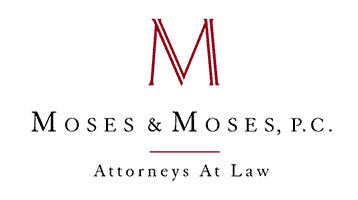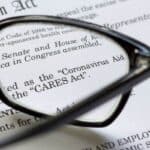Chronic understaffing. Low-wage caregivers. Difficulty containing infections. These are problems that nursing homes faced in the best of times but that have proved especially deadly as the coronavirus pandemic has spread like wildfire though long-term care facilities. In response, many states have moved to shield nursing homes — and in some states assisted living facilities as well — from lawsuits related to the care they are providing during the pandemic. Long-term care advocates are fiercely opposing the measures.
The coronavirus pandemic has hit nursing homes particularly hard. One-third of all deaths are residents or workers in nursing homes or other long-term care facilities, and in 15 states more than half of all COVID-19 deaths have been related to long-term care. In the best of times, nursing homes often have problems with staffing shortages and infection outbreaks, and the pandemic has exacerbated these problems.
Residents and families who are unhappy with the way their facility has handled the outbreak may not have much recourse against the facility. According to Time, at least 18 states have granted long-term care facilities some legal immunity from lawsuits related to the pandemic and another 10 states are considering protections. These provisions tend to grant immunity from civil, but not criminal, lawsuits to facilities that are providing care in good faith during the pandemic (an exception is New York’s recently enacted law, which gives immunity to nursing homes from both civil and criminal lawsuits). While the immunity does not apply to willful or criminal misconduct or gross negligence, it may apply to harm stemming from resource and staffing shortages. As the states act, industry lobbying groups are pushing for the federal government to enact broad immunity protections as well.
Long-term care advocates are opposing the rush to grant immunity to nursing homes, with one advocate calling it “basically a license for neglect.” A group of organizations that advocate on behalf of nursing home residents sent a letter to Congress, arguing that residents need the protection that a lawsuit can provide now more than ever. The letter points out that none of the previous safeguards for residents — including long-term care ombudsmen, regular inspections, and family supervision — are currently available to residents due to lockdowns.
Despite states’ grants of immunity, families of nursing home residents affected by COVID-19 are looking for ways to hold the facilities accountable. E-Street Band guitarist Nils Lofgren has spoken out about his anger and disappointment over New Jersey’s immunity provisions and has filed a lawsuit against his mother-in-law’s nursing home. A Florida law firm is also planning to file suit against two nursing homes for their handling of the pandemic, and a California family is suing a nursing home, arguing that the nursing home negligently allowed a staff member with COVID-19 to work at the facility.
Another potential avenue of liability for nursing homes is from staff lawsuits. Many nursing home workers contracted COVID-19 at work. The family of a deceased nursing home employee in Texas is suing the nursing home for wrongful death. The lawsuit alleges the facility did not properly respond to the pandemic and did not provide their employees with personal protection equipment.
To read an article from Time about the push to grant immunity to nursing homes, click here.






